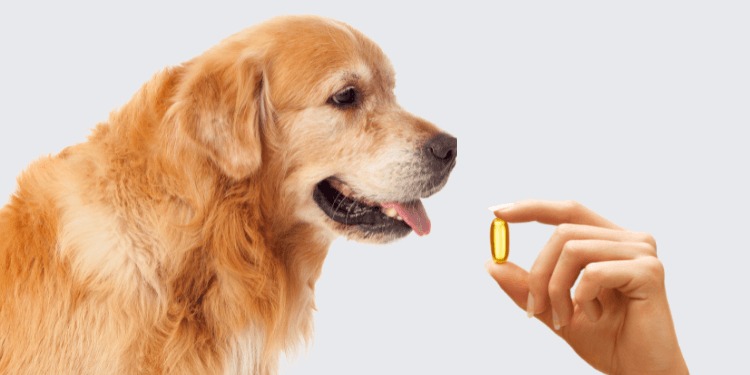As pet parents, we all want our furry companions to look and feel their best. A shiny coat and healthy skin are not just about appearance—they are reflections of your pet’s overall well-being. One of the key nutritional factors that directly influence skin and coat health is omega fatty acids. These essential nutrients play a vital role in maintaining skin integrity, reducing inflammation, and giving your pet that glossy, healthy coat you love to see.
-
What Are Omega Fatty Acids?
Omega fatty acids are a type of polyunsaturated fat that the body cannot produce on its own in sufficient amounts. That’s why they are called essential fatty acids—they must come from food or supplements. The two main types important for pets are:
- Omega-3 fatty acids: Found in fish oils (like salmon oil, sardine oil) and some plant oils (flaxseed, chia seeds, algae).
- Omega-6 fatty acids: Commonly found in vegetable oils (sunflower, safflower, corn oil) and poultry fat.
Both omega-3 and omega-6 are required in your pet’s diet, but what matters most is the balance between the two. An imbalance—too much omega-6 and too little omega-3—can lead to inflammation, itchy skin, and poor coat condition.
-
Why Are Omega Fatty Acids Important for Pets?
- Healthy Skin Barrier
Omega fatty acids are integral components of cell membranes. They help keep the skin barrier strong, which prevents excessive water loss and keeps allergens, bacteria, and irritants from entering. A strong skin barrier means fewer problems like dryness, flakiness, or sensitivity.
- Shiny and Soft Coat
If you’ve ever noticed your pet’s coat looking dull or rough, it may be due to a deficiency in essential fatty acids. Omega-3s, especially EPA (eicosapentaenoic acid) and DHA (docosahexaenoic acid), help nourish hair follicles, making the coat softer, shinier, and less prone to shedding.
- Anti-Inflammatory Benefits
Omega-3 fatty acids have natural anti-inflammatory properties. This is especially beneficial for pets suffering from allergies, dermatitis, or inflammatory skin conditions. Supplementation often reduces redness, itching, and hot spots, giving your pet much-needed relief.
- Supports Wound Healing
In pets with skin injuries or post-surgical wounds, omega fatty acids support faster healing. They improve circulation, reduce inflammation, and encourage healthy tissue repair.
- Helps with Seasonal and Environmental Allergies
Many pets experience itchy skin during certain seasons or due to environmental allergens. Omega fatty acids can modulate the immune system’s overreaction, reducing flare-ups and the constant scratching that can damage the skin.
- General Health Benefits Beyond Skin and Coat
Omega fatty acids also support:
- Joint health – by reducing stiffness and inflammation.
- Heart health – by supporting cardiovascular function.
- Brain and vision development – especially important in puppies and kittens.
-
Signs Your Pet May Need More Omega Fatty Acids
As a pet parent, it’s important to watch for early signs that your dog or cat may not be getting enough omega fatty acids:
- Dry, flaky, or itchy skin
- Excessive shedding or hair loss
- Dull, brittle coat lacking shine
- Frequent ear or skin infections
- Hot spots or red, inflamed areas
- Delayed wound healing
If you notice these symptoms, consult your veterinarian to rule out underlying conditions and to discuss whether omega fatty acid supplementation may help.
-
Sources of Omega Fatty Acids for Pets
Natural Food Sources
- Fish oils (salmon, sardine, anchovy, krill) – Rich in EPA and DHA
- Plant oils (flaxseed, chia seed, hemp seed) – Contain ALA (alpha-linolenic acid), which pets convert to EPA/DHA, though less efficiently
- Poultry fat and certain vegetable oils – Rich in omega-6 fatty acids
Supplements
Many high-quality pet supplements are available in the form of oils, capsules, or chews. These are especially useful if your pet’s diet doesn’t provide adequate omega-3s.
Tip for pet parents: Always choose supplements specifically designed for pets. Human formulations may not be suitable, as they can contain additives or higher concentrations that may upset your pet’s stomach.
-
Litter training alongside weaning
Weaning time is perfect for litter box lessons:
- Use a low-sided, shallow box with non-clumping litter at first (safer if they taste it).
- Place the box near their feeding/sleep area (but not too close to food).
- Put kittens in the box after meals and naps. A few gentle paw-scrapes in the litter shows what to do.
- Praise every success; accidents are normal early on.
-
Getting the Right Balance
While omega-6 is essential, modern pet diets (especially those based heavily on grains or processed foods) tend to have an excess of omega-6 compared to omega-3. This imbalance can contribute to inflammation. Supplementing with fish oil or omega-3-rich products helps restore the balance and improve skin and coat health.
Veterinarians usually recommend omega-3 supplementation for pets with chronic skin conditions, but even healthy pets can benefit. The right dose depends on your pet’s weight, diet, and health condition, so always follow veterinary advice.
-
How Long Before You See Results?
Patience is key. Improvements in skin and coat health are gradual. Most pet parents notice changes within 4–8 weeks of consistent supplementation. Your pet’s coat will gradually become softer, shinier, and less prone to shedding, while skin irritation and itching often reduce significantly.
-
Final Thoughts for Pet Parents
Your pet’s skin and coat are windows to their internal health, and omega fatty acids are one of the simplest yet most powerful ways to keep them glowing with vitality. Whether your pet is dealing with skin problems or you simply want to enhance their natural beauty, adding the right balance of omega-3 and omega-6 fatty acids to their diet can make a world of difference.
As always, talk to your veterinarian before starting any new supplement. With proper guidance, omega fatty acids can help your pet not only look better but also feel healthier from the inside out.
Share This Post

